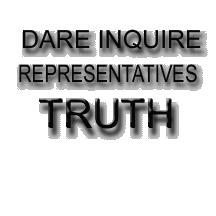


|
Civic illiterates Tribune-Review November 22, 1999 It's worse than we feared. The latest National Assessment of Education Progress Test shows the current crop of elementary and secondary school students to be largely illiterate when it comes to good old-fashioned civics. You know, the Declaration of Independence, the U.S. Constitution and its Bill of Rights, and the basics of our system of self-governance. Among the findings from tests administered to a 22,000-strong representative sample of fourth-, eighth-, and 12th-graders in public and private schools in 1998: A mere 26 percent of high school seniors, many of whom have reached voting age, are considered well-versed enough to make reasonable, informed choices at the polls. One-third of those seniors lack even a basic understanding of how government is run. One-third of the fourth- and eighth-graders tested below that basic level. And only 6 percent of eighth-graders could give two reasons why countries benefit from having a constitution. An incredibly shocking 9 percent of the 12th-graders could list two - just two, mind you - ways that our grand Democratic Republic benefits from the active participation of its citizenry. Diane Ravitch, a Department of Education official during the Bush administration, sits on the board of the nationwide group established by Congress to oversee the testing. She told The Associated Press that the results are a warning of the serious lack of American civic education. It should be noted that Ms. Ravitch is not bemoaning necessarily how civics is taught but that it seems to be taught less and less if taught at all. And how did the Clinton administration react? Education Secretary Richard W. Riley, citing a 25-percent ``proficiency'' rate for high school seniors, said he was pleased. Dire should be considered the consequences for a civics-illiterate nation. It is a breeding ground for socialism, statism and, yes, even despotism. After all, if a growing number of our next generation of leaders has little or no concept of the fundamental republicanism on which our nation rests, upon what foundation will it rely when it inherits leadership's mantle? We would proffer that the generation now coming of age is not the first to be civics-impaired. Those not having a solid civics core have become the parents, teachers, and leaders who are obviously none too disposed to impart a curriculum for which they had substandard instruction themselves. And therein lies the tragedy. We have become a nation in which those who don't know better but should are the role models for a generation that deserves to know better and could. Should we allow this vicious cycle to infect just one more succeeding generation, the republic as we know it - or should know it - is doomed.

Is U.S. a Republic or a Democracy?Ask Them All Court Unanimously Rejects Clinton Census Sampling Scheme ATLANTA, Sept. 25
 

|
|